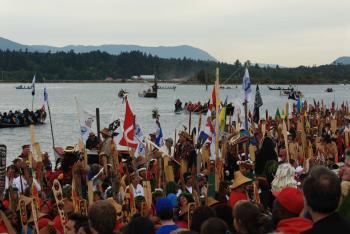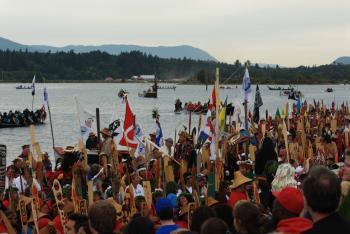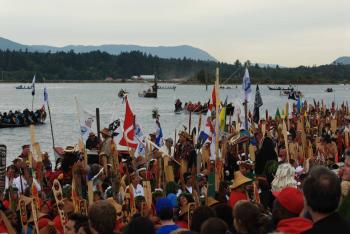Aboriginal Athletes to Compete at Indigenous Games
Just as Team Canada is getting set to compete in the Beijing Olympics, aboriginal athletes across Canada and the United States are gearing up to give their all at the North American Indigenous Games (NAIG) beginning August 3.

Tribal Journeys’ canoes docking in Cowichan Bay. The arrival of 106 ocean-going canoes marked the beginning of the 2008 North American Indigenous Games running from August 3 – 10. Courtesy of Cowichan 2008 North American Indigenous Games

Joan Delaney
Senior Editor, Canadian Edition
|Updated:





